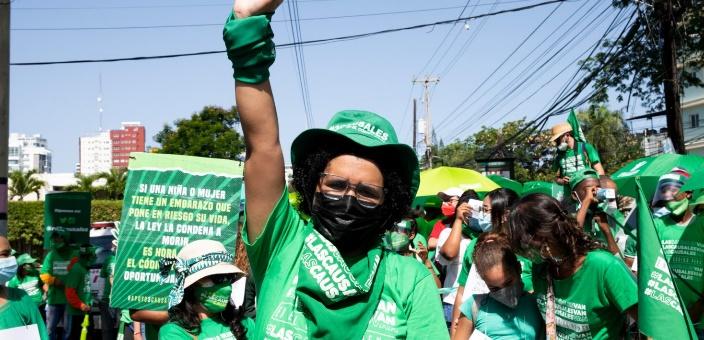
On 3 August, President Abinader approved a new Penal Code for the Dominican Republic after years of attempts to reform existing criminal law, which dates back to the 19th century. However, the legislative and executive branches ignored many of the demands of civil society and public figures who were demanding a better Code.
In response to this, Astrid Valencia, Americas research director at Amnesty International, said: “President Abinader is consolidating a legacy of institutional violence and gender injustice. Dominican society deserves a Code that will guarantee human rights, not one that perpetuates a draconian total ban on abortion, putting the lives, health and dignity of women and girls at risk.”
The Dominican Republic is one of the countries with the highest maternal mortality rates in the region, with estimates indicating that at least 10% of such deaths are related to unsafe abortions. Despite this, the new Penal Code maintains the total criminalization of abortion, even in cases of rape or incest, or where the life of the pregnant woman is at risk.
Dominican human rights organizations have denounced other shortcomings in the new Code that exacerbate discrimination and violence against women and girls. These include the prescription of criminal proceedings relating to sexual violence against adult women, a regressive classification of sexual violence within the context of an intimate relationship that does not meet international standards, tolerance of physical punishment against children, and a failure to punish discrimination based on sexual orientation and gender identity.
“It is no coincidence that abortion and the correct classification and punishment of sexual violence are among the issues still not addressed in this Penal Code. These omissions reflect a deeply patriarchal and sexist perspective that seeks to control women’s bodies, decisions and lives.” – Johanna Cilano Pelaez, regional researcher for the Caribbean at Amnesty International.
Amnesty International has repeatedly denounced discrimination against women in the Dominican Republic, whether because of immigration policies that put the lives and health of pregnant women at risk or because of harmful laws that perpetuate control over their bodies. In light of this regression, Amnesty International urges the authorities and the National Congress to amend the Penal Code prior to its entry into force in 2026, ensuring that human rights, gender equality and the protection of women, girls and LGBTIQ+ people are central pillars of criminal legislation.
SOURCE: Dominican Republic, by Amnesty International, August 2025. PHOTO: Loreno Espinoza/ Amnestia Internacional.



